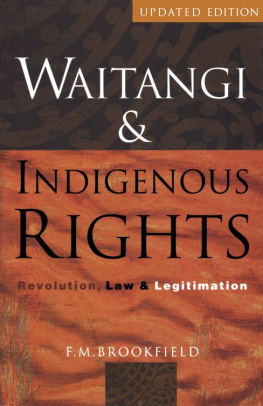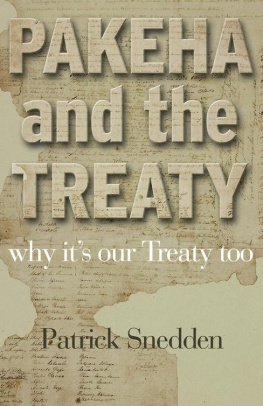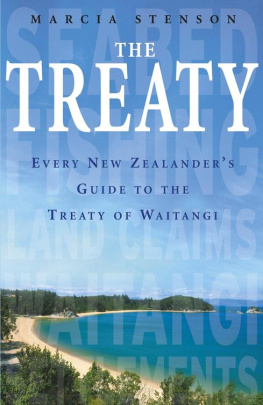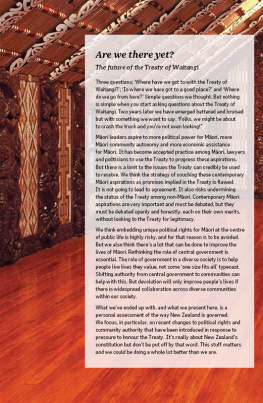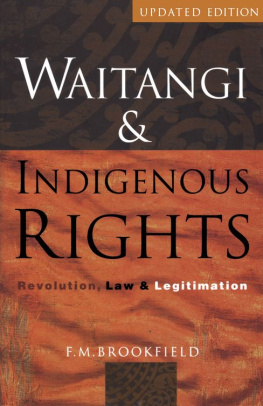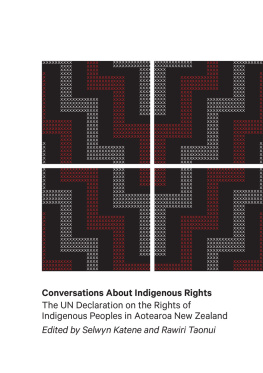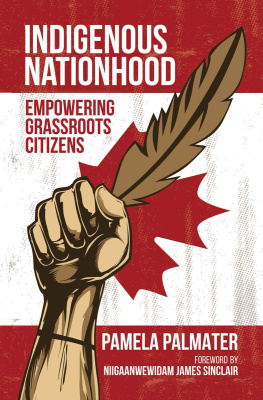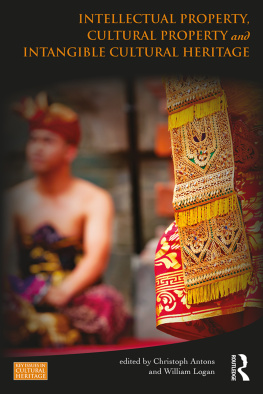My warm thanks go to Elizabeth Caffin, of Auckland University Press, for her patience and help and to Simon Cauchi for his meticulous editing. They go also to the Hon. Justice David Baragwanath for his support and for the generous Foreword. I have benefited from conversations with Judith Binney, Keith Sorrenson and Andrew Sharp.
The book has been written in the period of indefinite (preferably long) academic leave known as retirement. I am grateful to the University of Auckland and its Law Faculty for accommodating me and to the University librarians, especially of the Davis Law Library, for their help throughout.
I owe a long standing debt of gratitude to Tony Honor, under whose guidance the ideas on the nature and problems of de facto government, developed here in a New Zealand context, first took shape many years ago.
My greatest debt, as always, is to my wife, Brenda.
F.M. Brookfield
In relation to both editions, my warm thanks for help, encouragement and support go to all those referred to above, to whom I add Emeritus Professor Francis Reynolds. Where it is especially due I express again my deep sense of obligation.
I mention, with Elizabeth Caffin, her team at the Auckland University Press: my meticulous new editor Anna Hodge, Katrina Duncan, Annie Irving and Christine OBrien. Such thanks go to them also, especially for their wide-ranging help, patience and cheerful efficiency.
This is a timely book. Its themes are todays big issues how New Zealands legal system should be constituted at a time of change to past certainties, of rapid globalization, of possible constitutional change, of local search for security and for identity. While they deeply concern Maori, Allen Curnow has expressed the uncertainty of other New Zealanders, including those of European descent:
Not I, some child, born in a marvellous year,
Will learn the trick of standing upright here.
Jock Brookfield offers a path to resolution, the product of a lifetimes reflection, research and experience.
Informed participation in debate is essential to New Zealanders effective performance of their role of citizen and the ability thereby to influence events. Otherwise, decisions will be made by default, without proper consideration and balancing of the competing values and priorities that are the stuff of a complex society. That way lies the repetition of past error and its grief, which is not yet behind us.
This substantial and readable work offers New Zealanders an alternative to such a course. By providing the wealth of Professor Brookfields own scholarship and that of other thinkers, including those with whose views he joins issue, it will contribute mightily to an understanding of our constitutional heritage, the issues and the options, at a time when pressures for change are increasing.
He is a master of his evocative theme. As an Oxford doctor and the doyen of New Zealand public lawyers, he identifies and offers penetrating observations upon the key issues of political and legal philosophy; as a member of a long-established New Zealand family, he does so with passion. His doctoral thesis concerned the legitimacy of state succession following revolution; his inaugural lecture as Professor of Public Law at the University of Auckland tackled the expulsion of Maori from their traditional fisheries within the theme of the legitimacy of the presence of Pakeha in New Zealand and St Augustines dictum
Set aside justice then, and what are kingdoms but fair thievish purchases? Because what are thieves purchases but little kingdoms?
That lecture was cited in and of profound importance to the series of judicial decisions and negotiations that restored substantial fisheries resources to Maori. Professor Brookfield also took a leading part in the preparation of the Tainui argument in their momentous Court of Appeal case in 1989. He has advised the Waitangi Tribunal.
But he is no zealot, as appears from the careful balance of his argument. Professor Brookfield is not one to engage in generalities that have not been thought through. He does not, for example, support the separatism of dual legal systems within New Zealand, supporting his point with the practical illustration of joint offending by New Zealanders of Maori and Pakeha descent. Rather he examines the practical realities through a principled lens: justice does require constitutionally secure protection for the minority within the nation state, and, while rejecting overseas solutions that could not work in New Zealand, boldly offers his own proposals for change.
This work offers a major contribution to our future. I commend it whole-heartedly .
David Baragwanath
Judge of the High Court of New Zealand, President of the Law Commission
Rightly or wrongly, new circumstances now apply and a number of conflicting private interests, honestly obtained, must be weighed in the balance, it is out of keeping with the spirit of the Treaty [of Waitangi] that the resolution of one injustice should be seen to create another.
In those words the Waitangi Tribunal has explained an aspect of its statutory task. In inquiring into and making recommendations concerning wrongs done by the Crown to Maori, the Tribunal must allow for rights that have arisen under the succession of constitutional arrangements that followed the British Crowns formal assumption of power over the indigenous Maori of Aotearoa New Zealand in 1840. The wrongs into which the Tribunal inquires do of course relate specifically to the Treaty of Waitangi entered into in that year; but they may be classed generally with wrongs done whenever one people seizes power over the territory of another.
The new rights to be allowed for are those arising under legal systems (or, synonymously, legal orders) which, imposed by revolutionary seizers of power, become at least partly legitimated over time. This book is in large part a study of the process by which legitimation or partial legitimation takes place, including the role of courts in that process and in the constitutional challenges to the legal order of which they are part when issues of the governments legality or legitimacy arise. In the New Zealand context radical Maori protesters often challenge the jurisdiction of the New Zealand Courts and the legality of the government; and, in much more extreme situations in other countries, courts have been required to decide whether a government and constitution established by revolution (the ultimate and most drastic form of political protest) have become lawful.
The concept of revolution as a means of basic constitutional change, both in the overt overthrow of a government and constitution and also as a technique for giving effect to and securing a settlement of constitutional differences (the quiet revolution), is used throughout the book.
Part I provides legal (including jurisprudential) and historical background and a consideration of the legitimacy of legal systems or orders established by revolution, especially in the case of the revolutionary conquests of Western expansion and colonization.
In Part II the focus is on revolutions and attempted revolutions in New Zealand constitutional history. The Crowns assertion of power over New Zealand is treated as revolutionary in that it took from the chiefs who signed the Treaty of Waitangi more than they ceded and took from the non-signatories (who had ceded nothing). Chapter 5 goes on to consider the colonialist revolution, by which as the

